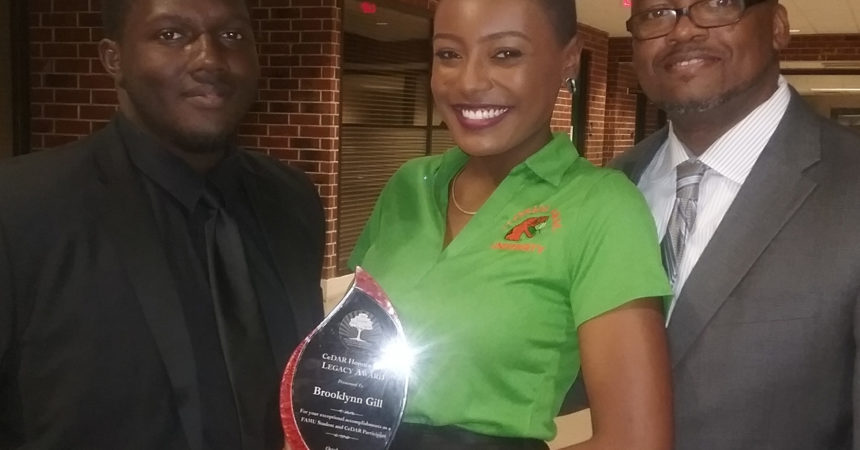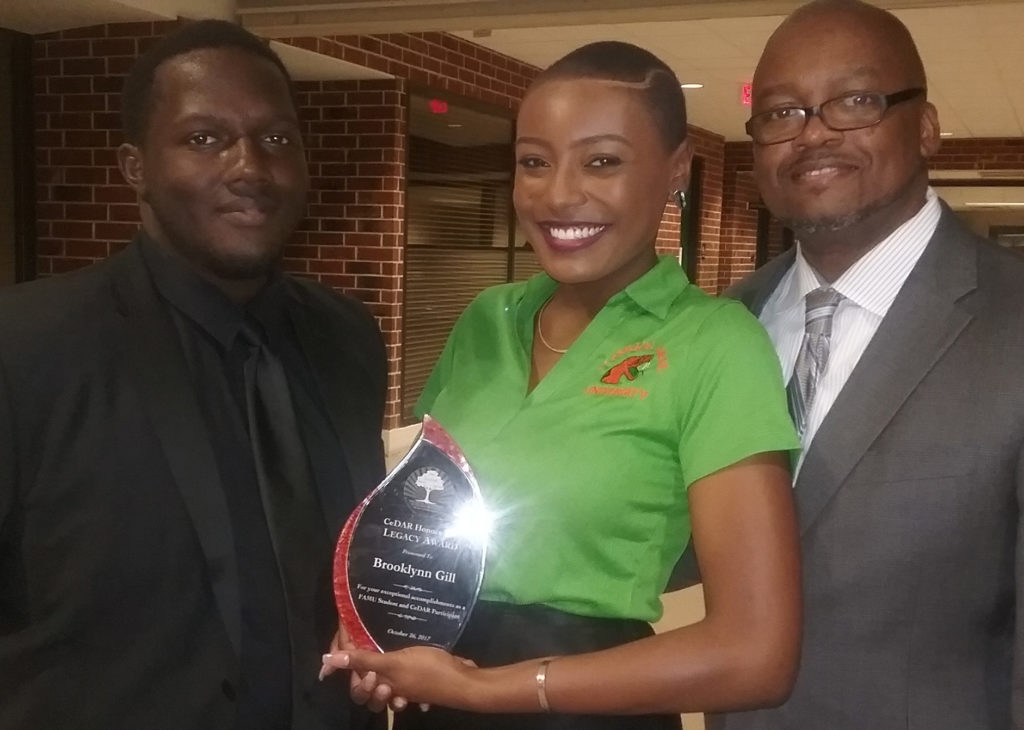
Students with disabilities celebrated at FAMU

Ibrahyim Moore, left, is a former CeDAR Legacy Award winner, while Brooklynn Gill was named this year’s winner of the same award. Photo by St. Clair Murraine
By St. Clair Murraine
Outlook staff writer
Ibrahyim Moore couldn’t understand why his classmates shunned him.
After a few years of enduring, he sought the answer at home.
“When I was very young, I would ask my mother and father why people didn’t want to talk to me,” said Moore. “Is it me or do I have kryptonite on me or something that nobody wants to talk to me?”
The answer they gave him is that he suffers with Asperger’s Syndrome, a form of autism.
Moore is one of about 400 students with disabilities who are attending FAMU. A select group of them were honored this past Thursday as part of the university’s Center for Disability Access and Resources annual ceremony celebration of Disability Awareness Month.
FAMU has been running its CeDAR program since the late 1980s, said Jovany Felix, director of the Center for Disability Access and Resources. Students who participate in the CeDAR program are clinically diagnosed before they come to FAMU, he said.
Most get there through recruiting and are encouraged to enroll just like every other student.
Felix and William Hudson, Jr., VP for student affairs, debunked the belief that every student with a disability uses a wheel chair. Another misconception is that disabled students have a separate curriculum, they said.
‘These students, I have no doubt, can perform just as well as any other students,” Hudson said. “They just need some extra assistance and we provide that assistance.
“We go further than academically getting these students to graduate. We nurture them, help them with employment opportunities and resume writing.”
Moore, a 25-year-old senior from Stone Mountain, Ga., who is majoring in history education with a minor in theater, said he struggled at first with his disability after he was diagnosed in middle school.
He fully accepted the challenges of his disability after coming to FAMU, he said.
“It’s not about what you have as a disability,” he said. “It’s mainly about what you’re going to do and never make your disability an excuse or be ashamed about it. There are many other individuals out there that feel like they are nothing special anymore.”
That’s not how Brooklynn Gill, a sophomore from Fresno, Calif., felt. She is dyslexic and there are times when getting through her classes could be challenging, she said.
“Every day is a struggle,” said Gill, who is majoring in chemical engineering. “In classes, we are expected to read these chapters and come prepared with notes.
“In those situations, it hits me hard because all of my life I’d been running away from reading.”
Gill, who admittedly doesn’t have much of a social life because of her studies and being dyslexic, said she takes every opportunity she can to advocate that students with disabilities could be successful.
“I make sure everybody knows that I have a disability,” she said. “Not for advantages, but to inspire people to learn and to do all they can for their future.”







